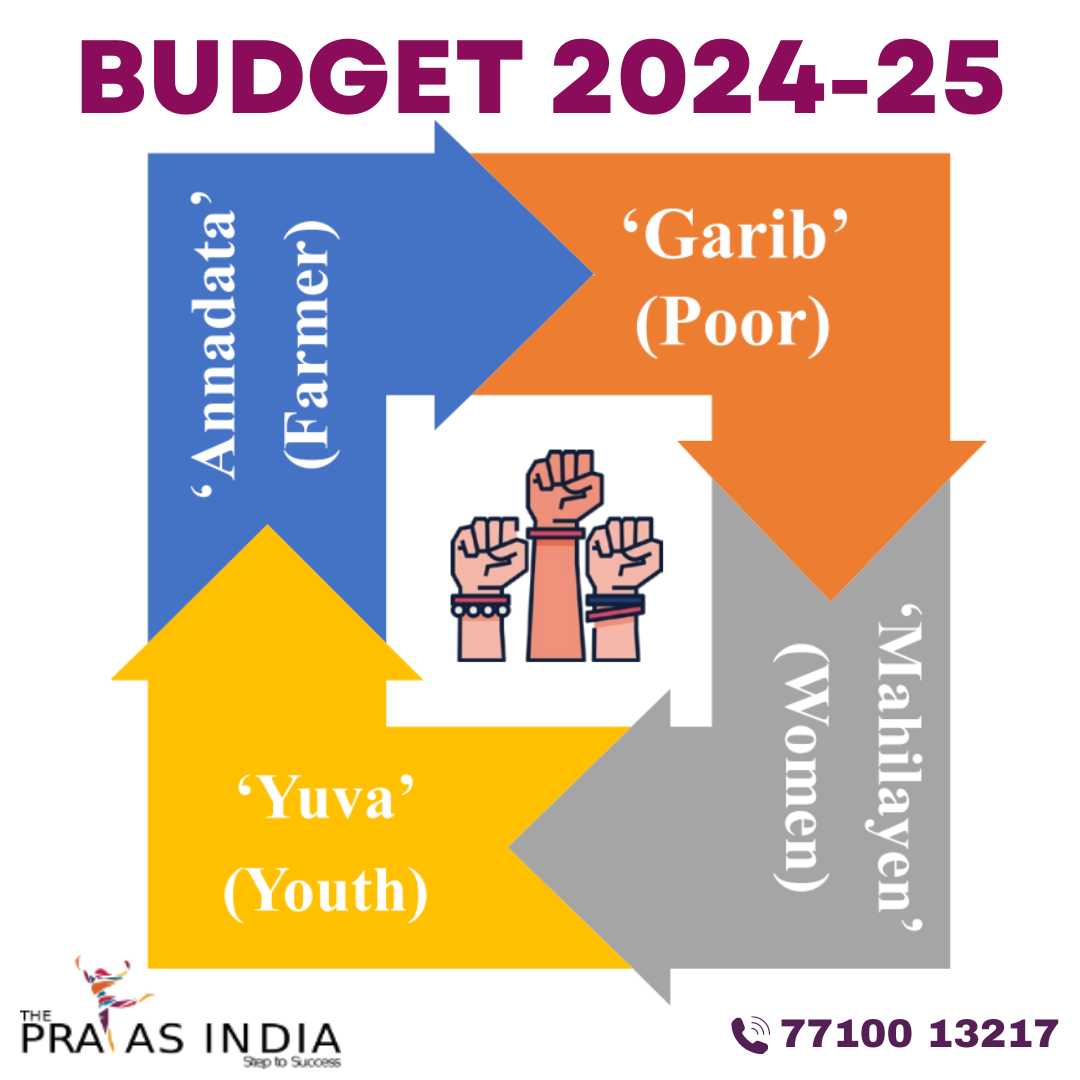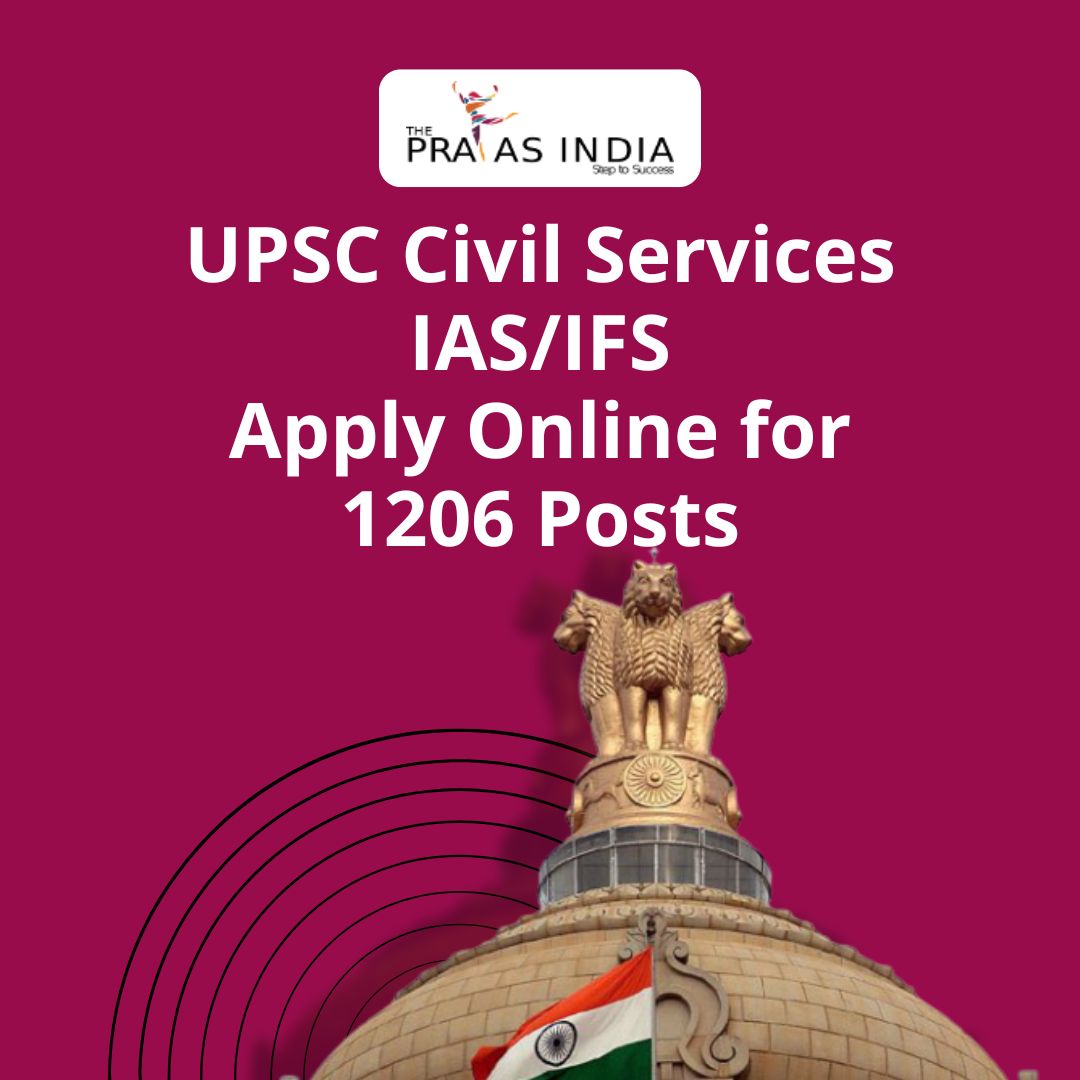Free UPSC Material 2022: Browsing over the exam syllabus will give you a good sense of what kind of UPSC study material you’ll need. Additionally, look over the past year’s UPSC CSE Exam question papers to see what types of questions were asked and what the most essential sections of the syllabus were. Keep your sources to a minimum and stick to the top ones. In this essay, we’ll talk about free UPSC study materials and answer questions like “Where can I find Free UPSC study materials?” What are the IAS study materials? Here you will find answers to these questions. So, let’s get started.
Free UPSC Study Materials for Prelims
Knowing what not to study is more crucial than knowing what to look for in this exam. As a result, you must use a genuine source. Referring to someone who has gone through the exam procedure or who has passed the exam is the best way to choose study materials. As many experts have advised, you will learn more about the NCERTs to read here, as this is the foundation of your UPSC preparation. For your IAS test preparation, you must read NCERT textbooks.
The UPSC Preliminary exam consists of two mandatory papers with 200 marks each.
Paper I: General Studies
Paper II: General Studies
The following are the 9 papers of the IAS Exam Mains:
Paper A: Compulsory Indian Language
Paper B: (English) are qualifying papers.
Whereas Essay, General Studies Papers I, II, III, IV, and Optional Papers I and II are used to determine the final ranking.
Multiple-choice and objective-type questions will be asked. Preliminary exam scores will not be used to determine final rankings; instead, they will be used to determine whether or not you are eligible to take the main exam. The main written test consists of nine papers. However, only seven of them will be counted in the final merit ranking. Now let’s talk about free UPSC study material.

- History (NCERT)
7th— I – Our Past.
8th— Our History, Parts II and III.
9th— World of Today – I & Medieval India.
10th— Themes in the world History & Modern India.
12th— Ancient India & Introduction to Indian Art Culture. - Geography (NCERT).
9th— Contemporary India – I.
10th— Contemporary India – II.
11th— India- Physical Environment & Fundamentals of Physical Geography.
12th—Fundamentals of HG & India- People & Economy. - Polity (NCERT).
9th— Democratic Politics – I.
10th— Democratic Politics – II.
11th— Indian Constitution & Political Theory.
12th— Democratic Politics – I. - The Economics (NCERT).
11th Indian Economic Development.
12th Indian Economic Development. - Science and Technology (NCERT).
8th, 9th, 10th, 11th (Chemistry Unit-14 & Biology Units- 4 & 5).
Chemistry Unit- 16 & Biology Unit- 8, 9, 10 - Environment & Ecology (NCERT).
12th —Biology Unit- 13 to 16
Additional UPSC Free Material 2022
- Old NCERT books for History from before the year 2000 can be used as additional IAS preparation resources.
- RS Sharma’s Ancient India (class XI): This book comprehensively covers the ancient Indian history curriculum.
- Alternative RS Sharma’s India’s Ancient Past is now available in print. It covers all of the NCERT IAS syllabus and is more detailed in every way. It should suffice as a stand-in.
- Satish Chandra’s Medieval India (class IX) Satish Chandra’s History of Medieval India is an alternative published version. More in-depth than the NCERT but more difficult to read. NCERT would be preferable.
- Bipin Chandra’s Modern India (class X): UPSC Medieval History Textbook.
- Alternative Bipan Chandra’s published book, India Before Independence, is more detailed and widely available. However, the NCERT is more objective and easier to read.
- World History (Class X) This should be a basic introduction to world history.
Continue reading to learn which NCERT books should be studied for the IAS mains test (Free IAS materials). At the conclusion of the article, you’ll find a link to download all of the necessary NCERT books for UPSC – IAS.

Free UPSC Materials for Mains
The mains IAS study material is quite extensive and lively. Because the majority of the static syllabus is covered in prelims, the focus should be on how to apply these static concepts in current events. In order to get good grades in the mains, you’ll need to be able to articulate your ideas and write good answers. There is a static syllabus that is also included in the mains.
- GS— I Sociology.
- The NCERTs are sufficient: 11th Class (Introducing Sociology and Understanding Society) and 12th Class (Indian Society and Social Change & Development in India)
- Internal Security (GS III): For more information, see Ashok Kumar’s book Challenges to Internal Security.
- Relations with other countries (GS III).
- V P Dutt’s India’s Foreign Policy Since Independence is an excellent book. The focus of international relations is primarily on current events.
- Aptitude, Integrity, and Ethics (GS IV)
- There is no one-size-fits-all guide to Ethics, Integrity, and Aptitude. It’s a fast-paced subject that necessitates case study preparation. Ethics, Integrity, and Aptitude by Nanda Kishore is a good book to read about ethics.
Prelims and Mains Current Affairs
The majority of IAS preparation is focused on current affairs, and knowing what to read and what not to read makes a significant difference in total preparation.
It will help if you read The Hindu or The Indian Express on a regular basis for proper IAS preparation. You must select news that is relevant to your UPSC syllabus from these papers. Analyzing the last 8-9 years’ papers shows that the number of questions from this part changes significantly, but at least 5-8 questions are directly or indirectly related to International Affairs.
Magazines, in addition to newspapers, can be used. For example, Kurukshetra and Yojana are excellent publications for researching government programs, new development strategies, and so on. The free UPSC material can be found by clicking the link provided above.
Similarly, free IAS material can be found here. Science Reporter, a government publication, is useful for keeping up with the latest developments in science and technology.
You can also consult Economic and Political Weekly for policy analysis. It’s in-depth reporting, on the other hand, has limited utility in UPSC. Another option for studying Current Affairs is to use the online resources that are available.
Free UPSC Study Material– Other Books
To keep up with current events, candidates should read the newspaper every day. Then, examine past year’s UPSC IAS Prelims and Mains question papers to determine the nature of the exam’s questions. They must also select the ideal books to study for the examination.
The following are the most important and recommended books for UPSC IAS Prelims and Mains:
- 5th Edition of Laxmikanth’s Indian Polity
- Majid Husain’s Geography of India
- Ramesh Singh on India’s Economy
- Certificate Physical and Human Geography
- Spectrum presents a brief history of modern India.
- Online Free UPSC Materials – Examples include ClearIAS.com and government websites such as PIB.

Conclusion— Free UPSC Material
Finally, we examined Free UPSC IAS material in this article. In addition, for applicants who are serious about passing the UPSC test, we provide the best online and offline IAS preparation. Choosing the proper and complete IAS study material is critical to passing and earning a position in the coveted IAS test. You can find free previous year papers on our website. You can also get in touch with our mentor. To measure your speed and accuracy, as well as identify your weak areas, you must conduct mock examinations. Mock tests should not be put off until the very last minute. All NCERT textbooks are available for download HERE.
FAQ— Free UPSC Material
[sc_fs_faq html=”true” headline=”h2″ img=”” question=”Where can I get UPSC study materials for free?” img_alt=”” css_class=””] Download Free UPSC Books and UPSC Study Materials here: NCERT Books are available for download. Yojana Magazine is available for download. Kurukshetra Magazine. VisionIAS. You can also look for free resources on the internet. [/sc_fs_faq] [sc_fs_faq html=”true” headline=”h2″ img=”” question=”Is it necessary to study NCERT for UPSC? ” img_alt=”” css_class=””] Yes, the NCERT books provide brief information in simple language that is easy to understand. Furthermore, they are necessary for both the UPSC Prelims and Mains exams. [/sc_fs_faq] [sc_fs_faq html=”true” headline=”h2″ img=”” question=”What are the best IAS Mains books? ” img_alt=”” css_class=””] The best UPSC books for IAS Mains are Bipan Chandra India’s Struggle for Independence, G C Leong’s Certificate Physical Geography, Laxmikanth’s Indian Polity, Spectrum’s Facets of Indian Culture, Ravi P. Agrahari’s Science and Technology, Ramesh Singh’s Indian Economy, Karthikeyan’s Ethics, Integrity & Aptitude, and newspapers for current affairs, and so on [/sc_fs_faq] [sc_fs_faq html=”true” headline=”h2″ img=”” question=”How much time do you need to prepare for IAS? ” img_alt=”” css_class=””] For IAS preparation, a year of focused study is usually sufficient. Though some candidates have passed the exam after only 3-6 months of preparation, it is recommended that you devote a full year to studying and taking the exam. Also, You can see the courses we provide on our website. [/sc_fs_faq] [sc_fs_faq html=”true” headline=”h2″ img=”” question=”What is the application fee for the Union Public Service Commission’s (UPSC) IAS Exam 2022? ” img_alt=”” css_class=””] Prelims Exams for General and OBC Candidates cost INR 100, while Mains Exams cost INR 200. Females, ST/ ST/ PWD candidates, and ST/ ST/ PWD candidates, on the other hand, are exempt from paying application costs. [/sc_fs_faq]
Editor’s Note | Free UPSC Material
We discussed Free UPSC IAS material in this article. So remember to read carefully and click on the link provided above. We wish you all the best on your journey, and we hope that you will be able to make your dreams of joining the civil service come true. For additional information, please visit our website or contact us. Please stick to your resource if you trust it. Never rush to the conclusion of a list of great books or suggested resources. Continue to revise, and don’t forget to keep track of your own notes. During your exam, don’t read anything new. Finally, best wishes.


![Prayas-लक्ष्य [UPSC CSE Target] The Prayas India](https://theprayasindia.com/wp-content/uploads/2021/08/Prayas-लक्ष्य-UPSC-CSE-Target-The-Prayas-India-300x167.png)

![Prayas Pre-भेदश [UPSC CSE Prelims Test Series] The Prayas India](https://theprayasindia.com/wp-content/uploads/2021/08/Prayas-Pre-भेदश-UPSC-CSE-Prelims-Test-Series-The-Prayas-India-300x167.png)










